Meet the LIttle Old Lady from Pasadena

Marijuana Anti-Prohibition Project
https://www.marijuananews.org/
You Haven't Voted? Join the crowd

Have you voted? If you haven’t, then join the crowd as voter turnout for the March 5, 2024 primary election is dismal. Your vote is important and with so few people voting, it is even more important. Besides if you don’t vote, your vote isn’t important at all.
If you haven’t voted, dig out that mail-in ballot you received, fill-it out, put in the envelope, seal it and be sure and sign it on the back or it won’t be counted – then deposit in any mailbox – it is postage paid – that’s how important your vote is.
If you need information on who to vote for regarding candidates favorable to cannabis issues, you can access CaNORML’s voter guide by CLICKING HERE.
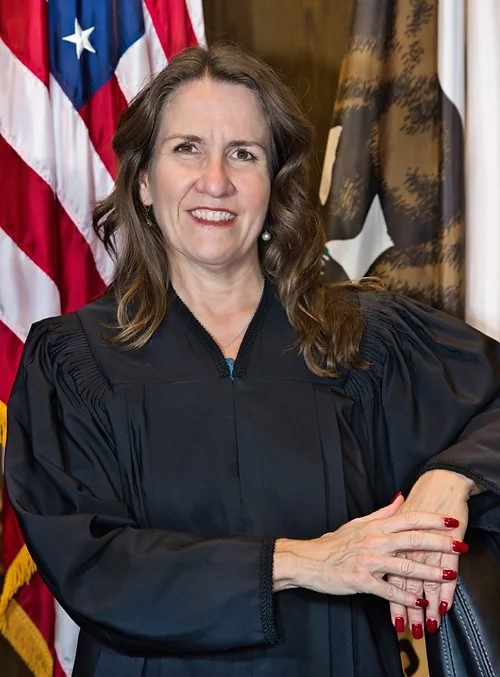 One other personal suggestion - if you live in Riverside County, for the office of Judge of the Superior Court, vote for Elizabeth Tucker. I had the opportunity to question her and her answers regarding the War on Drugs and cannabis legalization were right on target.
One other personal suggestion - if you live in Riverside County, for the office of Judge of the Superior Court, vote for Elizabeth Tucker. I had the opportunity to question her and her answers regarding the War on Drugs and cannabis legalization were right on target.
![]() Don't put it off another second - find that ballot and VOTE!!!
Don't put it off another second - find that ballot and VOTE!!!
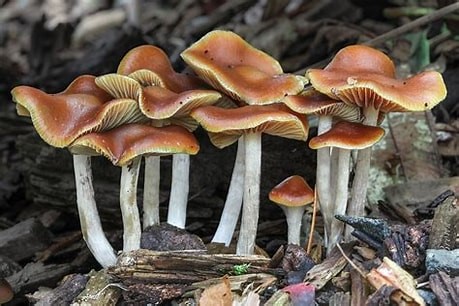 SPECIAL NOTE: For those of you who were not able to attend Terry Turner’s zoom seminar on Psilocybin, it is now available for viewing – just CLICK HERE. When the video loads, click on the picture to begin playing it.
SPECIAL NOTE: For those of you who were not able to attend Terry Turner’s zoom seminar on Psilocybin, it is now available for viewing – just CLICK HERE. When the video loads, click on the picture to begin playing it.
Want to help MAPP? Consider joining our 420 Club and make an effortless donation of $4.20 each month or make a one-time donation. Your support would be gratefully appreciated.
Marijuana Anti-Prohibition Project
SB Pot MURDERS, Free Psilocybin Class, Voting

The murders of six people involved in an illegal cannabis grow in San Bernardino County was horrific and garnered the County almost as much attention as did the mass shooting in 2015 that killed 14 people at San Bernardino’s Inland Regional Center.
A press conference about the six people killed at the illegal cannabis grow was held by San Bernardino Sheriff’s office on January 29 to announce the apprehension of five suspects who they believe committed the mass murders. The press conference was notable more for its vilification of Prop. 64 than an analysis of what happened.
At the press conference, San Bernardino County Sheriff Shannon Dicus made the following statement:
“What the supporters were saying about Prop. 64 is it would bring booming unregulated recreational marijuana under the rule of law and protect consumers and the environment. And it is recognition of decades of prohibition against aggressive enforcement of criminal laws that do not work. That’s false – 100%.”
No, it is not false – it is 100% accurate but only if Prop. 64 is allowed to work as intended which San Bernardino County, aided and abetted by the Sheriff’s and District Attorney’s offices, does everything in its power to sabotage, undermine, suppress and overturn.
Officer Dicus continued to vilify Prop. 64 stating:
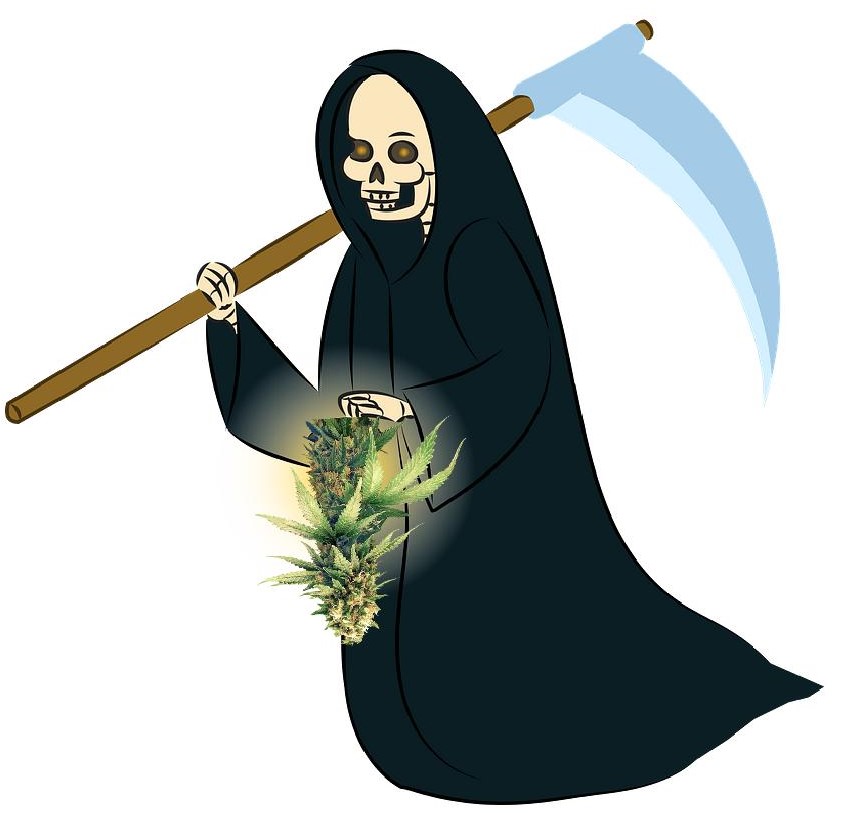 “The reality is that Prop. 64, in the fine print, took illicit marijuana and moved it from a felony to a misdemeanor and the reality of this is by allowing that we have unleashed a plague in California and the plague is the black market of marijuana and certainly cartel activity and the number of victims out there.”
“The reality is that Prop. 64, in the fine print, took illicit marijuana and moved it from a felony to a misdemeanor and the reality of this is by allowing that we have unleashed a plague in California and the plague is the black market of marijuana and certainly cartel activity and the number of victims out there.”
The apocalyptic intonation of “we have unleashed a plague in California and the plague is the black market of marijuana” was picked up and used as a headline and a lead-in in a number of articles and news broadcasts of this tragic event. The question that was not asked at the Press Conference and hence was not addressed was whether the “plague” of illegal marijuana grows was less, more or the same before Prop. 64 passed when it was a felony then it is today when it is now a misdemeanor.
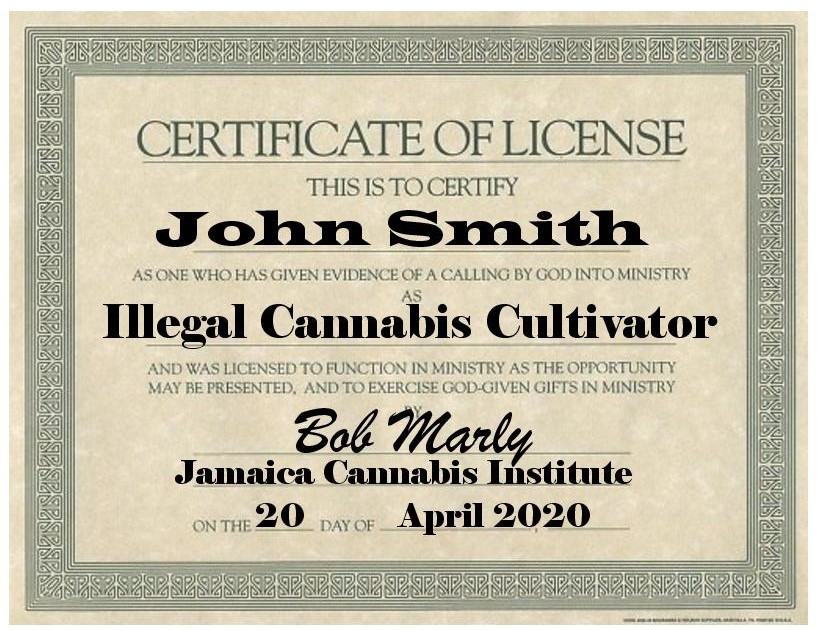 Since illegal growers do not take out licenses to grow cannabis illegally, no one really knows how many illegal grows there are. To get some kind of answer, I have filed a Freedom of Information request with the San Bernardino Sheriff’s office asking for the number of warrants issued to search illegal grows, the number of plants seized and the amount of processed cannabis and dollars seized over the last 10 years by the Sheriff’s office.
Since illegal growers do not take out licenses to grow cannabis illegally, no one really knows how many illegal grows there are. To get some kind of answer, I have filed a Freedom of Information request with the San Bernardino Sheriff’s office asking for the number of warrants issued to search illegal grows, the number of plants seized and the amount of processed cannabis and dollars seized over the last 10 years by the Sheriff’s office.
The only real plague is the plague of stupidity and callousness of the San Bernardino Sheriff’s office evidenced by these attacks on Prop. 64 at an event that should have been mourning the loss of life over a plant and not attacking the very law that, if properly implemented, would substantially reduce this type of tragedy.
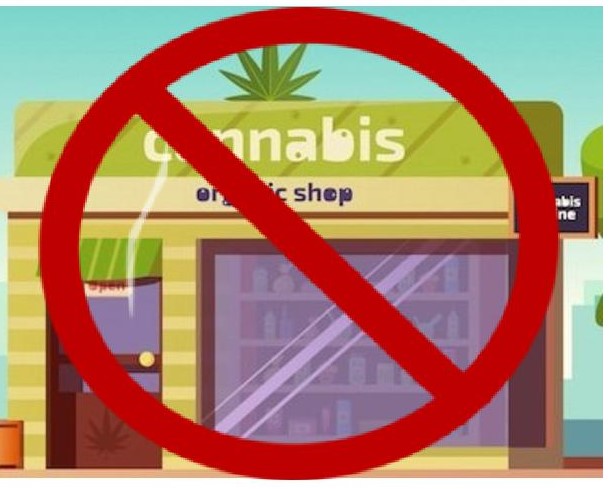 The bottom line of illicit grows and the other illegal cannabis activities is that San Bernardino County prohibits any commercial cultivation, manufacture or distribution of marijuana leaving criminal cultivation, manufacture and distribution as the only outlet for the majority of SB County residents.
The bottom line of illicit grows and the other illegal cannabis activities is that San Bernardino County prohibits any commercial cultivation, manufacture or distribution of marijuana leaving criminal cultivation, manufacture and distribution as the only outlet for the majority of SB County residents.
San Bernardino County still has not learned the lesson of alcohol prohibition which gave rise to crime, corruption and murders. If San Bernardino County wants to put an end to illegal cultivation and its associated problems, it should follow the will of the voters of California and San Bernardino County by enacting reasonable regulations, licensing requirements and taxes for marijuana businesses that are similar to those regulating alcohol.
As dreadful as these murders were, perhaps there is a silver lining as this horrendous event might give us the room to once again bring the issue before the San Bernardino Board of Supervisors to enact regulations to allow cannabis businesses to open in the unincorporated areas of the County.
This will only happen if enough people put enough pressure on the Board to direct their Planning Dept. to develop regulations to implement the commercial business portions of Prop. 64. We have not done much in the way of cannabis advocacy at Inland Empire city council and county board meetings since the passage of Prop. 64, so it is high time that we start in again.
Bring back those old days of advocating for access to cannabis for medical marijuana patients when we would bring 60 to 80 people to a SB County Board of Supervisors meeting to harangue them for two to three hours during the Public Comment session over their senseless and ultimately losing lawsuit (at a cost of over $100,000 taxpayer dollars) to have SB 420 declared unconstitutional and its refusal to allow medical marijuana dispensaries to operate.
This time, with Prop. 64 as our battering ram and the deaths of six people hanging over them for their continued prohibition of commercial cannabis businesses, we will be advocating for access to cannabis for everyone and an end to the commercial prohibition that flies in the face of the will of the voters of California and San Bernardino County and only results in tragedies such as the six murders.
 To that end, I am putting together a ZOOM meeting on Sunday, Feb.11 at 7 p.m. to discuss what we can do and how we can do it to fully implement Prop. 64 in SB County.
To that end, I am putting together a ZOOM meeting on Sunday, Feb.11 at 7 p.m. to discuss what we can do and how we can do it to fully implement Prop. 64 in SB County.
The Zoom link is: https://us02web.zoom.us/j/81294141754
To zoom in by phone call: 1-669-444-9171 and enter meeting ID # 812 9414 1754
Gem Montes of San Bernardino NORML will be joining us so please circle the date on your calendar for the Zoom meeting and Zoom on in – this is a call to arms. Riverside County allows cannabis businesses and it is time for San Bernardino County to do the same.
***********************************************************************************************************
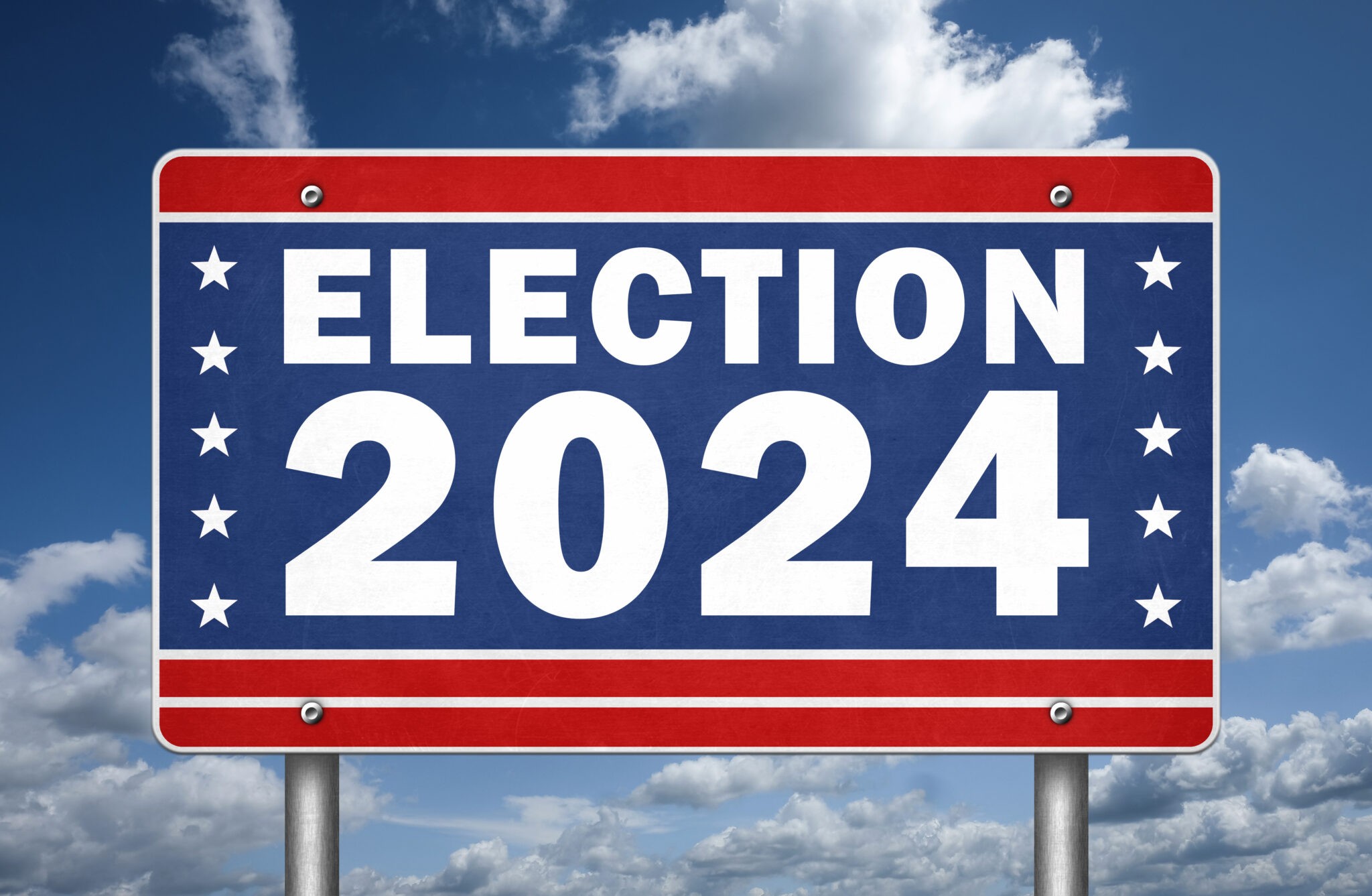 For a variety of issues and reasons, the November 2024 election is about as momentous an election as there has ever been in our lifetimes. Before that election comes California’s primary election on Tuesday, March 5. With 15 other states holding their primary elections on March 5, this Super-Tuesday ballot extravaganza delivers over one-third of all delegates to the presidential nominating conventions. It will most likely seal the nominations of both Biden and Trump – no surprise there.
For a variety of issues and reasons, the November 2024 election is about as momentous an election as there has ever been in our lifetimes. Before that election comes California’s primary election on Tuesday, March 5. With 15 other states holding their primary elections on March 5, this Super-Tuesday ballot extravaganza delivers over one-third of all delegates to the presidential nominating conventions. It will most likely seal the nominations of both Biden and Trump – no surprise there.
In California there are many other elections. The big one is the nomination for the U.S. Senate. Have you seen your voter guide? The number of candidates running for the U.S. Senate is only exceeded by the number of grains of sand on a beach, but for the Democrats it is coming down to Representatives Barabara Lee, Katie Porter and Adam Schiff and for the Republicans Steve Garvey. .
CaNORML has released a Cannabis Voters guide for California's March 5 primary. It is very interesting to read, so to get a copy CLICK HERE.
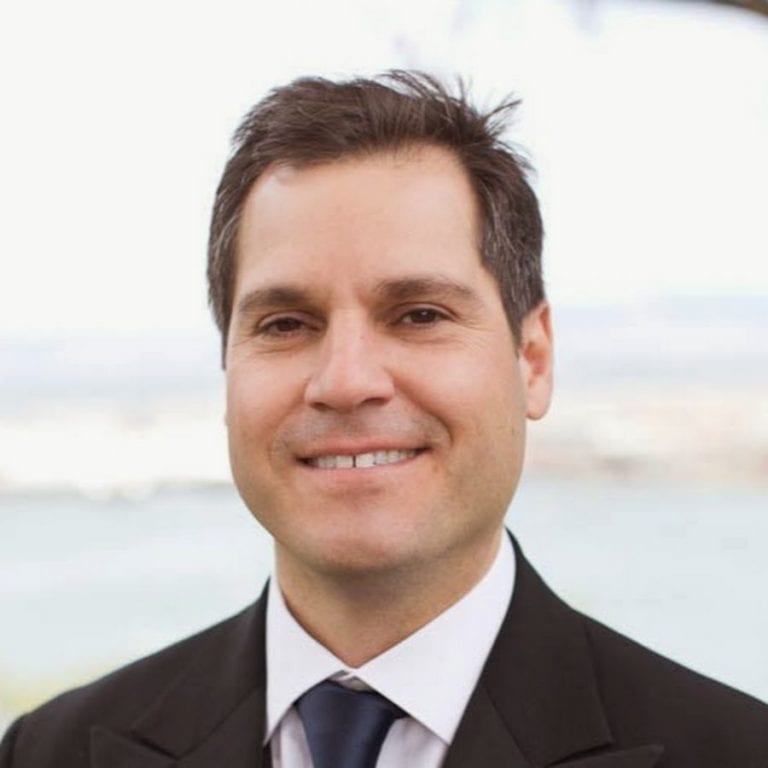 If you live in Sonoma County, you have the opportunity to elect to the Sonoma County Superior Court one of the foremost civil rights and cannabis attorney's in California - OMAR FIGUEROA. We truly need people like Omar on the Judicial Bench. For more information about Omar and to help on his campaign CLICK HERE. If you know people in Sonoma County, take a moment and send them an email about Omar and suggesting very strongly that they vote for him.
If you live in Sonoma County, you have the opportunity to elect to the Sonoma County Superior Court one of the foremost civil rights and cannabis attorney's in California - OMAR FIGUEROA. We truly need people like Omar on the Judicial Bench. For more information about Omar and to help on his campaign CLICK HERE. If you know people in Sonoma County, take a moment and send them an email about Omar and suggesting very strongly that they vote for him.
Look for your ballot to arrive this week and then vote. Friends don’t let friends not vote, so get your friends, family members, co-workers and that strange person down the street to vote. BTW If you have not received your ballot by the 2nd week of February, contact your local county Registrar of Voters.
****************************************************************************************************************

In November 2020, Oregon voters legalized the use of psilocybin. After almost 4 years, access is finally going to happen. You don’t have to be an Oregon resident to have this access but don’t look for stores opening on Main Street selling psilocybin. Although the uses do not have to be medical, getting access is only through licensed practitioners offering services in controlled and supervised locations.
A long time friend of mine, Terry Turner, moved from California to become a licensed psilocybin facilitator. You are invited to attend his FREE zoom seminar on Thursday February 15 at 5 p.m. Entitled “Portals of the Sacred”, the seminar is an amazing presentation you will not want to miss. Here is what Terry has written as an introduction to his seminar and the brave new world of Oregon’s legalization of psilocybin.
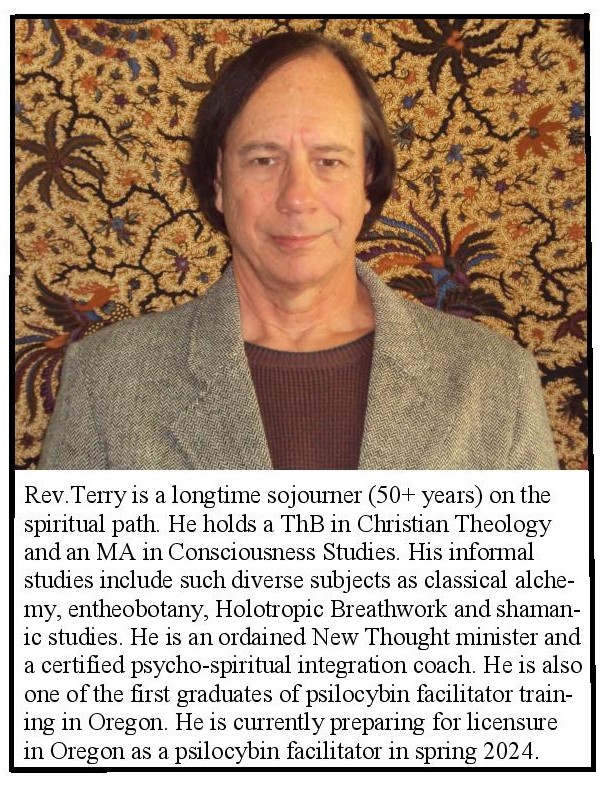 Toward the end of his ministry, Ernest Holmes famously exhorted his fellow ministers saying, “We must always remain open at the top for fresh revelations”. As a student of world religions, he was probably aware of the strong human tendency to codify revelation into creeds and doctrines and to slide into legalistic formalism. “The letter [of the law] kills but the spirit gives life.” (2 Corinthians 3:6). With few exceptions, direct mystical experience has been absent from the mainstream of Western religion for the last 2000 years! Legal access to psilocybin has the potential to change all that. In a 2008 study at Johns Hopkins University where volunteers were administered psilocybin under controlled conditions, 67% reported their experiences to be among the five most significant spiritual experiences of their lives and 72% reported mystical experiences that resulted in sustained changes in attitude, mood and behavior.
Toward the end of his ministry, Ernest Holmes famously exhorted his fellow ministers saying, “We must always remain open at the top for fresh revelations”. As a student of world religions, he was probably aware of the strong human tendency to codify revelation into creeds and doctrines and to slide into legalistic formalism. “The letter [of the law] kills but the spirit gives life.” (2 Corinthians 3:6). With few exceptions, direct mystical experience has been absent from the mainstream of Western religion for the last 2000 years! Legal access to psilocybin has the potential to change all that. In a 2008 study at Johns Hopkins University where volunteers were administered psilocybin under controlled conditions, 67% reported their experiences to be among the five most significant spiritual experiences of their lives and 72% reported mystical experiences that resulted in sustained changes in attitude, mood and behavior.
In my 30-minute PowerPoint presentation “Portals of the Sacred”, I briefly explain what psilocybin is, how it works and give a brief outline of the 7,000 year recorded history of its sacramental use. I conclude with a description of Psilocybin Services in Oregon—the first program of its kind in our nation offering supervised, controlled, non-medical state-legal access to psilocybin for adults over 21. Oregon residency is not required. Following a period of Q & A, participants will have the opportunity to experience the “sound arc” of a condensed 20-minute meditative “journey” with soundtracks used in the Oregon psilocybin service centers.
To Register for this free event contact Terry Turner at [email protected]. Include full name, phone number (optional), and email.
***********************************************************************************************************************
 If you have read this far, you must indeed be a dedicated reader and supporter of MAPP. Perhaps you might want to take one dedicated step further and become a member of MAPP's 420 Club and donate $4.20 each month surreptitiously and conveniently You can do that by CLICKING HERE. If you are more into making just a one- time donation, you can do that to by CLICKING HERE. Thanks for helping cover the expenses of our cannabis advocacy.
If you have read this far, you must indeed be a dedicated reader and supporter of MAPP. Perhaps you might want to take one dedicated step further and become a member of MAPP's 420 Club and donate $4.20 each month surreptitiously and conveniently You can do that by CLICKING HERE. If you are more into making just a one- time donation, you can do that to by CLICKING HERE. Thanks for helping cover the expenses of our cannabis advocacy.
2023 - The Good, The Bad & The Ugly

In 2023, the world was awash in wars - Gaza/Israel, Ukraine/Russia and over a dozen other wars mainly in Africa and Asia. The threat of famines and severe levels of food insecurity and malnutrition affect over 30 million people in north-eastern Nigeria, South Sudan, Somalia, Yemen, Malawi, Sudan, Afghanistan and Syria. The looming global catastrophes of climate change are just beginning to make themselves felt and according to scientists the rate is increasing ever faster. With all this and so much more, the state of cannabis can barely be recognized as a footnote in any analysis of the events of 2023.
 Yet it is a footnote that affects hundreds of millions of people throughout the world. From its devastating inclusion in the War on Drugs in which the U.S. alone has spent over one trillion dollars resulting in the imprisonment of tens of millions and is a major cause of the immigration crisis in Latin America as the War on Drugs turned many central American countries into narco states., we are now in the remarkable position of legalization reevaluation. 2023 in many ways foreshadows whether this reevaluation will continue.
Yet it is a footnote that affects hundreds of millions of people throughout the world. From its devastating inclusion in the War on Drugs in which the U.S. alone has spent over one trillion dollars resulting in the imprisonment of tens of millions and is a major cause of the immigration crisis in Latin America as the War on Drugs turned many central American countries into narco states., we are now in the remarkable position of legalization reevaluation. 2023 in many ways foreshadows whether this reevaluation will continue.
The United States has always been in the forefront of cannabis prohibition and was the driving force behind the 1961 UN Single Convention on Narcotic Drugs in which cannabis prohibition became world-wide with devastating consequences. The recent victory in Ohio where voters legalized the use of cannabis means that over half the U.S. population now lives in states that legalized cannabis for all-adult uses. Not surprisingly this relatively rapid change in the U.S. has led to a  world-wide revaluation especially in Europe and Latin America. It is now spreading to Asia where many countries still call for penalties of prison and death for its use and sales.
world-wide revaluation especially in Europe and Latin America. It is now spreading to Asia where many countries still call for penalties of prison and death for its use and sales.
To see where cannabis is going, let’s look at what happened in 2023 in the U.S. and worldwide.
 First off and in a way most important, support for cannabis legalization in the U.S. reach an all-time high. A Gallup poll published in October reported that 70% of American’s are in favor of its legalization. It is one of the few issues that seems to be immune to the polarization sweeping the country as majorities of Democrats, Republicans and independents are in support. Even more importantly, a recent SAMHSA (Substance Abuse and Mental Health Services Administration) found that over 40 million adults reported using cannabis in the last month – more now use cannabis then use tobacco.
First off and in a way most important, support for cannabis legalization in the U.S. reach an all-time high. A Gallup poll published in October reported that 70% of American’s are in favor of its legalization. It is one of the few issues that seems to be immune to the polarization sweeping the country as majorities of Democrats, Republicans and independents are in support. Even more importantly, a recent SAMHSA (Substance Abuse and Mental Health Services Administration) found that over 40 million adults reported using cannabis in the last month – more now use cannabis then use tobacco.
Following President Biden’s directive in 2022 to begin a government-wide review on federal cannabis prohibition, a top official at the Department of Health and Human Services (HHS), citing a review by the Food and Drug Administration, recommended moving cannabis from Schedule I to Schedule III under the Controlled Substances Act. Schedule III drugs are categorized as having “moderate to low potential for physical and psychological dependence” and would put cannabis in the same schedule as Tylenol with codeine.
The DEA is still conducting its final review, with a decision likely to come next year. When implemented, the move would be a boon for cannabis businesses as cannabis would no longer be a schedule I drug which means that IRS Section 280e would no longer prevent cannabis business from deducting business expenses from their gross receipts when calculating amount of taxes owed.
 Speaking of cannabis businesses, the SAFER Banking Act extends protections to financial institutions that offer services – such as bank accounts and loans – to state-approved cannabis businesses meaning they would no longer have to operate as cash-only businesses. Originally introduced more than a decade ago, the bill has passed the House multiple times but has never made it out of the Senate. In September, the Banking Act passed out of the Senate Banking Committee receiving votes from both parties. It is expected to pass the Senate next year and be sent to the President’s desk.
Speaking of cannabis businesses, the SAFER Banking Act extends protections to financial institutions that offer services – such as bank accounts and loans – to state-approved cannabis businesses meaning they would no longer have to operate as cash-only businesses. Originally introduced more than a decade ago, the bill has passed the House multiple times but has never made it out of the Senate. In September, the Banking Act passed out of the Senate Banking Committee receiving votes from both parties. It is expected to pass the Senate next year and be sent to the President’s desk.
All of this is leading more states to totally legalize cannabis. In 2023, Maryland and Missouri implemented initiatives passed by voters and the legislature in Delaware approved legalization all on its own – that’s how mainstream cannabis legalization is becoming.
Oklahoma voters turned down a legalization measure but perhaps part of that is because Oklahoma’s medical marijuana legalization is probably the best in the nation. Although Oklahoma faltered, Ohio did not as the Buckeye voters overwhelmingly approved a vibrant legalization measure. Unfortunately, in Ohio the legislature is allowed to alter vote approved initiatives and the Republican controlled legislature has already introduced measures to gut both the cannabis and the reproductive rights initiatives that were passed with significant majorities.
 2024 will continue to see voters having the opportunity to legalize cannabis. All eyes are on Florida which is expected to have a legalization initiative on the ballot along with South Dakota and Hawaii along with a medical marijuana legalization initiative in Nebraska. Legalization initiatives, like abortion rights initiatives, bring out younger voters and voters more likely to vote Democratic so be prepared to see some major policy shifts including promises by candidates at all levels to legalize adult-use of cannabis.
2024 will continue to see voters having the opportunity to legalize cannabis. All eyes are on Florida which is expected to have a legalization initiative on the ballot along with South Dakota and Hawaii along with a medical marijuana legalization initiative in Nebraska. Legalization initiatives, like abortion rights initiatives, bring out younger voters and voters more likely to vote Democratic so be prepared to see some major policy shifts including promises by candidates at all levels to legalize adult-use of cannabis.
Although I am no fan of the current interpretation of the 2nd amendment giving almost unlimited rights for just about anyone to possess just about any gun just about anywhere they want, I always felt it was absurd for the feds to deny gun ownership just because a person consumed cannabis. After all there is no banning of owning and using a gun because a person drinks alcohol and arguably a lot more deaths from guns have occurred because a person was drunk than because they were stoned.
 The return of 2nd amendment rights to cannabis consumers came in a ruling in Oklahoma by federal Judge Patrick Wyrick, a Trump appointee which declared unconstitutional the federal law that bars individuals who use marijuana from owning firearms as it infringed upon their Second Amendment right to bear arms. Judge Wyrick ruled that the use of marijuana does not reflect any violent or threatening behavior nor does it align with the nation's historical regulations on firearms. As an aside it is interesting to note that the defendant was not represented by the National Rifle Association which has always dragged its feet on protecting the rights of cannabis consumers to own firearms but was represented by a public defender.
The return of 2nd amendment rights to cannabis consumers came in a ruling in Oklahoma by federal Judge Patrick Wyrick, a Trump appointee which declared unconstitutional the federal law that bars individuals who use marijuana from owning firearms as it infringed upon their Second Amendment right to bear arms. Judge Wyrick ruled that the use of marijuana does not reflect any violent or threatening behavior nor does it align with the nation's historical regulations on firearms. As an aside it is interesting to note that the defendant was not represented by the National Rifle Association which has always dragged its feet on protecting the rights of cannabis consumers to own firearms but was represented by a public defender.
Whether it was because of his commitment to freedom of speech and open commerce or he needs to make up for the loss in advertising revenue due to the defection of major corporate sponsors over his controversial statements on racism, antisemitism and other cultural touchstones, Elon Musk has allowed X (formerly Twitter) to become the first major social medial platform to allow state-legal cannabis businesses to advertise.This is direct contrast to other social media platforms like Facebook that continue to deny cannabis businesses the ability to advertise. It shouldn’t be much longer before the others come around and grab cannabis money to stuff into their corporate pockets from cannabis businesses.
 Although the federal government through the National Institute on Drug Abuse still peddles the nonsense of a relationship between cannabis use and psychiatric disorders, a recently released 14 year study of an astounding 63 million Medicare recipients found no statistically significant uptick in psychiatric disorders across all regions or demographics as a result of cannabis legalization laws that now allow legal access to over half of all the adults in the U.S . This flies in the face of the sky-is-falling warnings by anti-cannabis advocates that increasing cannabis access would increase psychotic disorders which they claim justifies restricting and criminalizing access. This study puts another nail in the coffin of continuing to list cannabis as a schedule 1 narcotic in the Controlled Substances Act. Let’s hope that in 2024, the coffin is cremated.
Although the federal government through the National Institute on Drug Abuse still peddles the nonsense of a relationship between cannabis use and psychiatric disorders, a recently released 14 year study of an astounding 63 million Medicare recipients found no statistically significant uptick in psychiatric disorders across all regions or demographics as a result of cannabis legalization laws that now allow legal access to over half of all the adults in the U.S . This flies in the face of the sky-is-falling warnings by anti-cannabis advocates that increasing cannabis access would increase psychotic disorders which they claim justifies restricting and criminalizing access. This study puts another nail in the coffin of continuing to list cannabis as a schedule 1 narcotic in the Controlled Substances Act. Let’s hope that in 2024, the coffin is cremated.
As sort of a year-end bonus, President Biden announced he's issuing a federal pardon to every American who has used marijuana in the past, including those who were never arrested or prosecuted. Now how much of this is his desire to erase the injustices that have been committed in the past, many of which he helped implement in the 90s, or how much he is pandering to young people to vote for him in the November presidential election is a valid question but it is most likely a combination of both.
The Congressional Black Caucus and the ACLU lauded the pardons as a “positive step forward” and will address past injustices. Although the pardons will affect thousands of people convicted of federal cannabis offenses, it is really more symbolic of changing attitudes as the pardons do not apply to people who violated state law, where most of the criminal actions occur and for people convicted of selling.
 Turning towards California, thanks to the passage of AB 2188, the biggest and most important change comes on January 1 2024, which prohibits employers from discriminating against a person who has tested positive for non-psychoactive cannabis metabolites in their urine, hair, or bodily fluids. Although the new law will protect the vast majority of workers in California who use cannabis, it has exemptions for the building and construction trades as well as employees subject to federal drug-testing rules, like commercial truck drivers. Arguably, these people need cannabis as much as or even more then many others, so hopefully common sense will eventually prevail.
Turning towards California, thanks to the passage of AB 2188, the biggest and most important change comes on January 1 2024, which prohibits employers from discriminating against a person who has tested positive for non-psychoactive cannabis metabolites in their urine, hair, or bodily fluids. Although the new law will protect the vast majority of workers in California who use cannabis, it has exemptions for the building and construction trades as well as employees subject to federal drug-testing rules, like commercial truck drivers. Arguably, these people need cannabis as much as or even more then many others, so hopefully common sense will eventually prevail.
Significantly, the legislation allows employees who have experienced discrimination related to their cannabis use to institute civil action for damages and other relief against their employers. It is somewhat convoluted requiring a complaint to be filed with the California Civil Rights Department and may require the retention of a private attorney, but it certainly could be a cathartic experience going after those who caused others such misery.
Of importance to prospective employees is the passage of SB 700 which prevents employers from asking about past marijuana use in their employment hiring programs.
There were other bills that were passed and go into effect in 2024. Of particular importance are the following bills:
SB 51 allows the Department of Cannabis Control (DCC) to continue issuing provisional licenses to local equity applicants who otherwise could have lost their provisional permits as they were set to expire this year.
 SB 302 protects all patients 65 and over with chronic diseases by extending Ryan’s Law, which requires specified health-care facilities, such as hospices, to allow terminally ill patients to use non-smoked (or vaped) forms of cannabis.
SB 302 protects all patients 65 and over with chronic diseases by extending Ryan’s Law, which requires specified health-care facilities, such as hospices, to allow terminally ill patients to use non-smoked (or vaped) forms of cannabis.
Of importance to parents was the passage of AB 2595 that requires the State Department of Social Services to treat a parent’s use of cannabis in the same manner as alcohol or legally prescribed medication. Children are still being taken from their parents by Children’s Protective Services for their use of cannabis and hopefully this will put an end to this horrific practice.
 The biggest disappointment was the veto by Governor Newsom of AB 374 which would have allowed dispensaries with cannabis lounges to sell non-cannabis-infused food and nonalcoholic beverages. Most importantly it allowed dispensaries to sell tickets for live performances which puts them into direct competition with bars and taverns. Being able to enjoy live performances while consuming cannabis instead of alcohol would have been a major improvement to the enjoyment of the performances and to the health and safety of the community.
The biggest disappointment was the veto by Governor Newsom of AB 374 which would have allowed dispensaries with cannabis lounges to sell non-cannabis-infused food and nonalcoholic beverages. Most importantly it allowed dispensaries to sell tickets for live performances which puts them into direct competition with bars and taverns. Being able to enjoy live performances while consuming cannabis instead of alcohol would have been a major improvement to the enjoyment of the performances and to the health and safety of the community.
 Unfortunately, Gov. Newsom bought into the nonsense peddled by anti-tobacco and anti-cannabis lobbies that it would expose lounge workers to unhealthy and dangerous levels of 2nd hand cannabis smoke. That is absurd on the face of it as first-hand cannabis smoke is not dangerous let alone 2nd hand cannabis smoke. The bill’s author, Assembly member Matt Haney, intends to reintroduce the bill in 2024 hopefully finding ways to address the Governor’s concerns about 2nd hand cannabis smoke.
Unfortunately, Gov. Newsom bought into the nonsense peddled by anti-tobacco and anti-cannabis lobbies that it would expose lounge workers to unhealthy and dangerous levels of 2nd hand cannabis smoke. That is absurd on the face of it as first-hand cannabis smoke is not dangerous let alone 2nd hand cannabis smoke. The bill’s author, Assembly member Matt Haney, intends to reintroduce the bill in 2024 hopefully finding ways to address the Governor’s concerns about 2nd hand cannabis smoke.
 One other item that is not directly cannabis related but is still a significant part of ending the War on Drugs, were the resolutions and platform additions that I introduced at the California Democratic Party state conventions and executive board meetings in 2023. They put the party’s stamp of approval on the decriminalization of all drugs while requiring the state to treat all drug addicts through the health care system and not the criminal justice system. CaDEM is the largest and as far as I know the first major political party in the U.S. to call for the outright decriminalization of all drugs. I am now working with several state legislators to introduce legislation to make this a reality.
One other item that is not directly cannabis related but is still a significant part of ending the War on Drugs, were the resolutions and platform additions that I introduced at the California Democratic Party state conventions and executive board meetings in 2023. They put the party’s stamp of approval on the decriminalization of all drugs while requiring the state to treat all drug addicts through the health care system and not the criminal justice system. CaDEM is the largest and as far as I know the first major political party in the U.S. to call for the outright decriminalization of all drugs. I am now working with several state legislators to introduce legislation to make this a reality.
2023 did produce many important advances and reforms and it is important that we continue to press for more reforms and additional advances in 2024. From the ongoing battle to get cannabis out of the Schedule of Controlled Substances on the federal level to the lowering of cannabis taxes on the state and local level, the work goes on.
It may seem frustratingly slow, but if someone had told you 10 years ago that the day would be coming when cannabis was available in store front businesses on main street, that prices would plummet from their absurdly high $2,000 - $3,000 a pound down to under a $1,000 per pound, that you would be safe in your job even though you use  cannabis and that the number of arrests in California for cannabis violations would plummet from nearly 80,000 in 2008 to under 3,500 in 2022, you would rightfully be wondering how much that person had been drinking.
cannabis and that the number of arrests in California for cannabis violations would plummet from nearly 80,000 in 2008 to under 3,500 in 2022, you would rightfully be wondering how much that person had been drinking.
 Just before the clock strikes midnight on December 31, raise your left leg so that you will start off the year on the right foot.
Just before the clock strikes midnight on December 31, raise your left leg so that you will start off the year on the right foot.
Then continue 2024 on the right foot by joining MAPP’s 420 Club and donating $4.20 every month to keep us going throughout 2024.
CLICK HERE TO JOIN MAPP'S 420 CLUB
CLICK HERE TO MAKE A ONE-TIME DONATION
Governor Newsom & the Devil
 Got some great news. AB 374 which would allow cannabis dispensaries with lounges to sell food and non-alcohol beverages as well as have and sell tickets for live performances and other entertainment has passed the Assembly and the Senate and is now sitting on the Governor’s desk awaiting his signature.
Got some great news. AB 374 which would allow cannabis dispensaries with lounges to sell food and non-alcohol beverages as well as have and sell tickets for live performances and other entertainment has passed the Assembly and the Senate and is now sitting on the Governor’s desk awaiting his signature.
He has not signed it yet which is a bit troubling. Even more troubling is that he just vetoed SB 58 which would have decriminalized the possession and personal use of a short list of natural psychedelics, including “magic mushrooms." He has his eyes on the presidency in 2028 and so everything he does is influenced by that ambition.
This is why it is all the more critical that he hear from voters that he should sign this important and critical piece of legislation. AB 374 not only brings cannabis even more into the mainstream but can help the struggling legal cannabis businesses by giving them another outlet for attracting customers away from illegal sources and  giving bars and taverns a run for the money with cannabis lounges being now able to offer food, non-alcoholic beverages, dancing and entertainment just like they do.
giving bars and taverns a run for the money with cannabis lounges being now able to offer food, non-alcoholic beverages, dancing and entertainment just like they do.
It should be noted that AB 374 was officially endorsed by the California Democratic Party. Since Newsom is a Democrat, I am sure this will have some influence on getting him to sign the bill, but the most important influence comes from you so it is important that you contact Governor Newsom now.
There are two ways to contact Governor Newsom - phone and the internet.
To phone call (916) 445-2841. Follow the prompts and you will be able to speak with an aide. Just tell the aide to let the Governor know you want him to sign AB 374. Don't have to say anymore but if you want to elaborate a little bit more go ahead. You will have to call during office hours which are Monday - Friday 9 a.m. to 5 p.m.
On the internet which can be done 24/7 go to: https://www.gov.ca.gov/contact/
On the right hand side, select send an Email and then under Select an Option chose the first one Active Bill. Then from the list of bills choose AB 374. The next box is for the purpose of your email and that is to leave a comment. Go to next page and choose Pro and in message subject put AB 374 and in message write "Please Sign AB 374." On the next page put in your name and email address and optional phone number. Click submit and sit back and congratulate yourself for doing something to make this world better and a lot more fun.
Now you are probably wondering what is this all about the devil. Well while you are calling Governor Newsom and may be on hold or why you are filling out the contact form on the Governor's website, you can enjoy this great Muppet clip of The Devil Went Down to Jamaica. Just CLICK HERE.
Thanks for taking a few minutes to contact Governor Newsom about AB 374. I really want to go to a cannabis lounge, enjoy some good food, listen to music, dance, be entertained and smoke pot. Don't you?
Lanny Swerdlow, RN LNC
New Poll - Cannabis Not Dangerous as Feds Play Catch-Up
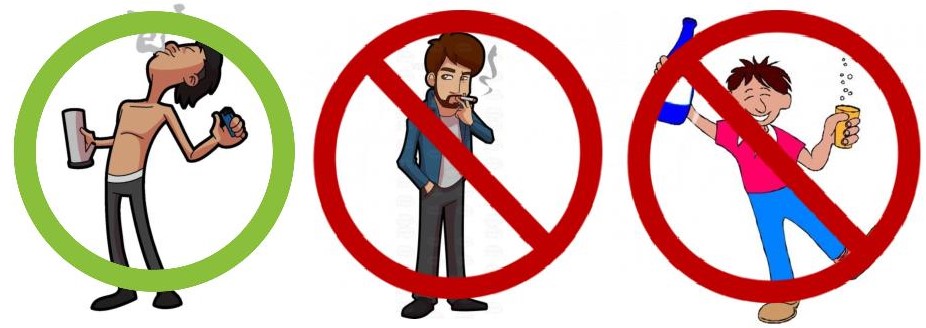
Americans seem to be coming apart at the seams with divergent and widely polarizing positions on so many hot button issues, but on one of them, there seems to be a most definite coalescing of opinion that actually follows the science.
A new Gallup poll finds that most Americans find alcohol and tobacco to be more dangerous then cannabis and in very significant numbers.
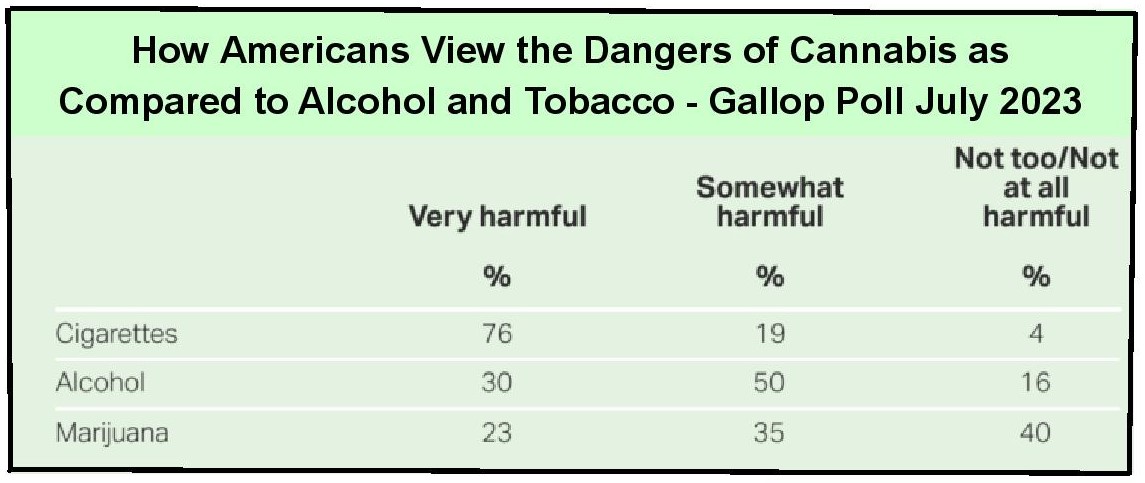 While 76% find tobacco to be very harmful only 23% find cannabis to be very harmful. Although only 30% find alcohol to be very harmful, that is more then find cannabis very harmful. Perhaps the most telling statistic is the Not Very or No Harm category, with only 4% classifying tobacco in the Not Harmful category and 16% classifying alcohol Not Harmful, but a very robust 40% of Americans place cannabis in that Not Very/Not at all Harmful category.
While 76% find tobacco to be very harmful only 23% find cannabis to be very harmful. Although only 30% find alcohol to be very harmful, that is more then find cannabis very harmful. Perhaps the most telling statistic is the Not Very or No Harm category, with only 4% classifying tobacco in the Not Harmful category and 16% classifying alcohol Not Harmful, but a very robust 40% of Americans place cannabis in that Not Very/Not at all Harmful category.
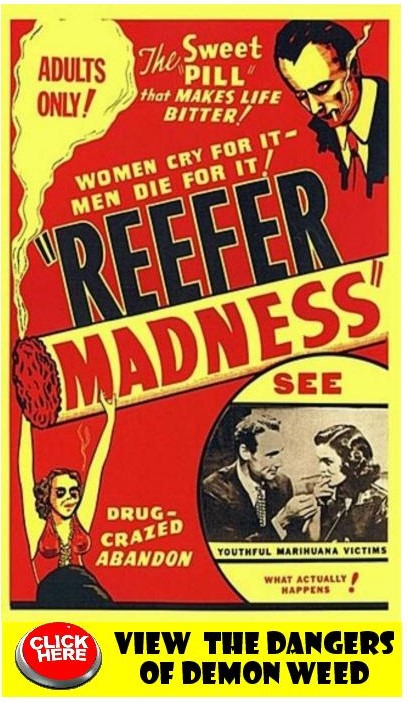 What a tsunami change of opinion. Cannabis used to be seen as the Demon Weed capable of destroying lives, endangering health and driving people to rape and murder. Now the vast majority (75%) of Americans have rejected those demonizing labels and either feel cannabis is only somewhat dangerous or Not Very or No danger at all.
What a tsunami change of opinion. Cannabis used to be seen as the Demon Weed capable of destroying lives, endangering health and driving people to rape and murder. Now the vast majority (75%) of Americans have rejected those demonizing labels and either feel cannabis is only somewhat dangerous or Not Very or No danger at all.
The poll found that the use of cigarettes remains stable at a historic low, with just 12 percent of adults saying that they’ve smoked a cigarette in the past week. Of interest is that the Gallup poll found more people smoke cannabis then tobacco with 17% of Americans currently smoking cannabis with over 50% of Americans saying they have at least tried the formerly demon weed once. It should be noted that the poll asked about “smoking” cannabis, so the total is likely considerably more then 17% as it doesn’t include those who use products that are not inhaled like edibles and oils.
Although in the case of vaccines and climate change, many Americans are not following the science, but when it comes to cannabis they are. A 2015 study conducted by researchers from the Center for Addictions Research of British Columbia at the University of Victoria and the Canadian Center on Substance Abuse at the University of Ottawa, found that health-related costs per user are eight times higher for alcohol consumers than they are for those who use cannabis, and are more than 40 times higher for tobacco smokers.
The report states, "In terms of [health-related] costs per user: tobacco-related health costs are over $800 per user, alcohol-related health costs are much lower at $165 per user, and cannabis-related health costs are the lowest at $20 per user." The study noted that "94 percent of social costs for cannabis are linked to [law] enforcement."
 With this change in public opinion, the feds are beginning to play catch-up with the Biden administration’s Department of Health and Human Services recommending to the Drug Enforcement Administration that cannabis be moved from Schedule I to Schedule III under the Controlled Substances Act. If the DEA follows through on the recommendation (and the DEA doesn’t have to and may very well not) it will be the biggest change in federal drug policy in decades.
With this change in public opinion, the feds are beginning to play catch-up with the Biden administration’s Department of Health and Human Services recommending to the Drug Enforcement Administration that cannabis be moved from Schedule I to Schedule III under the Controlled Substances Act. If the DEA follows through on the recommendation (and the DEA doesn’t have to and may very well not) it will be the biggest change in federal drug policy in decades.
Although cannabis should not even be in the CSA (alcohol and tobacco are not listed in the CSA), schedule III puts it into the same classification as Tylenol with codeine. As much as that change is a major step in the right direction, rescheduling cannabis from 1 to 3 does not end criminalization. People can still be subject to criminal penalties for mere possession.
 The move however would have a significant impact on the tax obligations of cannabis business owners as it removes cannabis from the IRS 280E tax provision which prohibits business owners from deducting business expenses from income derived from the “trafficking” of Schedule I or II substances.
The move however would have a significant impact on the tax obligations of cannabis business owners as it removes cannabis from the IRS 280E tax provision which prohibits business owners from deducting business expenses from income derived from the “trafficking” of Schedule I or II substances.
No doubt there is politics involved in this move with the Biden administration hoping that this long overdue change in cannabis policy coinciding with the uptick in approval of cannabis use by millions of Americans may get young people and independents to the polls who will then vote Democratic.
Politics aside, we continue to move in the right direction thanks to all the legalization measures that have been passed by the states. It has only been 11 years since Colorado and Washington passed America’s first cannabis legalization laws and only  7 years since the big one in 2016 was passed by California voters, but the momentum of change keeps increasing. With the feds beginning to finally back-off, the light at the end of the prohibition tunnel is growing brighter and coming closer.
7 years since the big one in 2016 was passed by California voters, but the momentum of change keeps increasing. With the feds beginning to finally back-off, the light at the end of the prohibition tunnel is growing brighter and coming closer.
Marijuana Anti-Prohibition Project
https://www.marijuananews.org/
Cannabis Lounges Gone Wild

Legislation is being considered and is close to passage that will allow cannabis lounges to serve food, non-alcoholic drinks and most importantly allow for cannabis lounges to have dancing, music and entertainment just like bars and taverns.
 AB 374 sponsored by Assemblyman Matt Haney will expand the activities that cannabis retailers may engage in by allowing licensed cannabis dispensaries to sell non-cannabis-infused food, nonalcoholic beverages and even tickets for live music or other performances.
AB 374 sponsored by Assemblyman Matt Haney will expand the activities that cannabis retailers may engage in by allowing licensed cannabis dispensaries to sell non-cannabis-infused food, nonalcoholic beverages and even tickets for live music or other performances.
This is really important as cannabis dispensaries are having difficult times competing with illegal sales which are far less costly than licensed cannabis dispensaries which pay high taxes and must comply with complex and expensive licensing requirement and regulations. In localities that have allowed dispensaries to operate consumption lounges, they are hamstrung from being able to profit from their lounge operations as current law prevents them from selling any products other than cannabis, AB 374 changes all that by allowing them to do essentially the same thing bars and taverns do which is to sell food and drink.
State law does not allow for the consumption of alcohol and cannabis at the same location. Cannabis dispensaries with lounges will have this unique ability to sell cannabis as a restaurant and entertainment facility all to themselves which will provide them with a very significant new source of revenue which illegal sellers will not be able to engage in. Cannabis lounges provide communities with multiple benefits, but the most significant in terms of health and safety is that these lounges provide an effective substitute for businesses serving alcohol.
cannabis as a restaurant and entertainment facility all to themselves which will provide them with a very significant new source of revenue which illegal sellers will not be able to engage in. Cannabis lounges provide communities with multiple benefits, but the most significant in terms of health and safety is that these lounges provide an effective substitute for businesses serving alcohol.
 Want to help make this happen? AB 374 has passed the Assembly and is now going to the Senate for a vote. It could meet some very significant opposition not only from the usual assortment of police and anti-cannabis foes but also a concerted attack by bars
Want to help make this happen? AB 374 has passed the Assembly and is now going to the Senate for a vote. It could meet some very significant opposition not only from the usual assortment of police and anti-cannabis foes but also a concerted attack by bars  and taverns that do not want any competition to their exclusive service of food and beverages accompanied by music, entertainment and live events.
and taverns that do not want any competition to their exclusive service of food and beverages accompanied by music, entertainment and live events.
Cannabis is the only product our there that can facilitate socialization and celebration in ways that alcohol can. Alcohol establishments are well aware of this threat to their businesses from cannabis lounges and will fight this bill tooth and nail calling upon their  allies like the National Restaurant Association, California Beverage Retailers Association along with alcohol distributors and producers to lobby legislators to vote against the bill.
allies like the National Restaurant Association, California Beverage Retailers Association along with alcohol distributors and producers to lobby legislators to vote against the bill.
 To counter them your State Senator needs to hear from their constituents LIKE YOU asking them to vote for AB 374. It is easy to do - it won’t take more than two minutes.
To counter them your State Senator needs to hear from their constituents LIKE YOU asking them to vote for AB 374. It is easy to do - it won’t take more than two minutes.
To find out who your State Senator is CLICK HERE:
Enter your address and click on LOCATE:
Then click on your Senator’s name and it will take you to their website.
Scroll through the website to find out where you can send them an email and even better find their offices and call the listed phone number.
In either case, tell them to vote for AB 374. That’s all you need to say but if you want to elaborate a bit more about why they should vote for it, all the better.
This is the MOST effective way of communicating and influencing an elected official. They really pay attention when one of their constituents takes the time to go to their website to send an email or find their phone number and actually call.  The alcohol industry has paid lobbyist to talk to your state senator, but they can’t vote for them and THEY KNOW YOU CAN – plus they know you might very well tell others you know to vote for them too so they really do pay attention to phone calls and emails they get from their constituents.
The alcohol industry has paid lobbyist to talk to your state senator, but they can’t vote for them and THEY KNOW YOU CAN – plus they know you might very well tell others you know to vote for them too so they really do pay attention to phone calls and emails they get from their constituents.
Their websites are open 24/7 and you can send an email anytime and call anytime as you can leave a voice message telling them vote for AB 374 if their office is closed. Take 2 minutes and do it and before long you will be able to go down to your neighborhood cannabis lounge with your friends, kick back and celebrate with your  favorite cannabis product with good food, beverages while enjoying music, dancing and entertainment. It can happen but it is up to you to make it happen.
favorite cannabis product with good food, beverages while enjoying music, dancing and entertainment. It can happen but it is up to you to make it happen.
![]()
CLICK HERE TO JOIN MAPP'S 420 CLUB
CLICK HERE TO MAKE A ONE-TIME DONATION
Help Your Business
Help MAPP
For info email
[email protected]
Marijuana Anti-Prohibition Project










